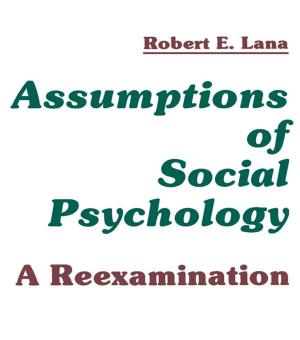Internationalized State-Building after Violent Conflict
Bosnia Ten Years after Dayton
Nonfiction, Social & Cultural Studies, Political Science, Social Science| Author: | ISBN: | 9781317969709 | |
| Publisher: | Taylor and Francis | Publication: | October 18, 2013 |
| Imprint: | Routledge | Language: | English |
| Author: | |
| ISBN: | 9781317969709 |
| Publisher: | Taylor and Francis |
| Publication: | October 18, 2013 |
| Imprint: | Routledge |
| Language: | English |
Previously published as a special issue of Ethnopolitics, this volume analyzes various dimensions of the internationalized state-building process in Bosnia and Herzegovina since 1995.
In December 1995, the Dayton Agreements ended the war in Bosnia and Herzegovina and established a fragile peace between the former conflict parties. The settlement seemed morally wrong and politically impracticable, but still necessary in order to end violence of a scale and intensity not seen in Europe since the end of the Second World War. The leading contributors conclude that internationalized state-building can only serve well in the stabilization of states emerging from conflict if it draws on a well-balanced approach of consociational techniques, moderated by integrative policies, tempered by a wider regional outlook and sustained by resourceful and skilled international involvement. The experience of Bosnia and Herzegovina may not have scored full marks in all of these categories, but important lessons can be gleaned for other similar contemporary and future challenges that the international community no doubt will have to face.
This book will be of interest to students and scholars of international organizations, civil wars and ethnic conflicts, international law and peace studies.
Previously published as a special issue of Ethnopolitics, this volume analyzes various dimensions of the internationalized state-building process in Bosnia and Herzegovina since 1995.
In December 1995, the Dayton Agreements ended the war in Bosnia and Herzegovina and established a fragile peace between the former conflict parties. The settlement seemed morally wrong and politically impracticable, but still necessary in order to end violence of a scale and intensity not seen in Europe since the end of the Second World War. The leading contributors conclude that internationalized state-building can only serve well in the stabilization of states emerging from conflict if it draws on a well-balanced approach of consociational techniques, moderated by integrative policies, tempered by a wider regional outlook and sustained by resourceful and skilled international involvement. The experience of Bosnia and Herzegovina may not have scored full marks in all of these categories, but important lessons can be gleaned for other similar contemporary and future challenges that the international community no doubt will have to face.
This book will be of interest to students and scholars of international organizations, civil wars and ethnic conflicts, international law and peace studies.















